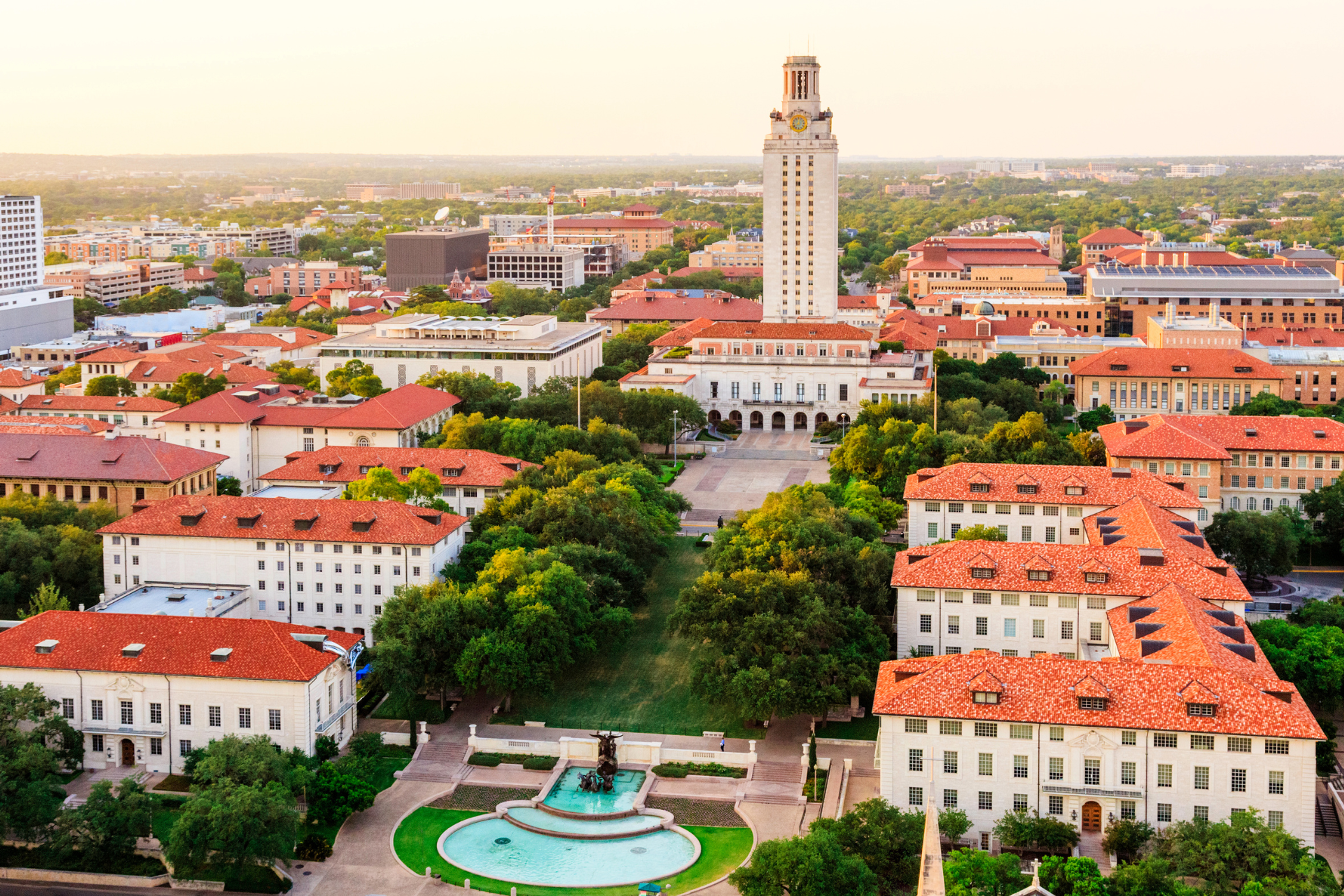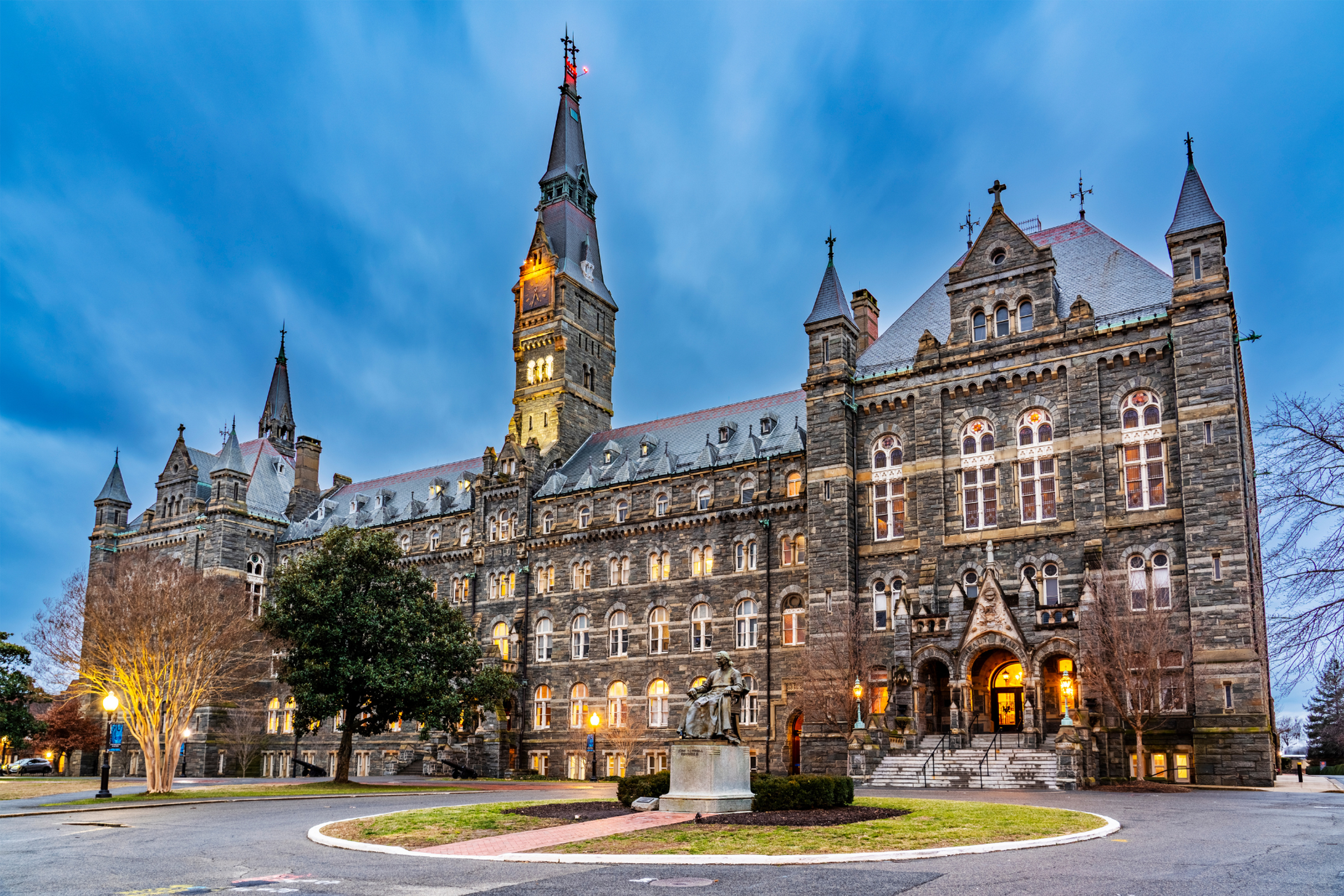
Table of Contents
The Columbia JD/MBA is one of the fastest and most rigorous joint degree programs in the country, offering an accelerated path to earning both a Juris Doctor and an MBA in just three years. Designed for future leaders at the intersection of law, business, and policy, this program immerses students in the full academic experience of both Columbia Law School and Columbia Business School, without the extra year most dual degrees require.
Whether you're aiming for a career in corporate law, venture-backed startups, regulatory strategy, or executive leadership, the Columbia JD/MBA equips you with the tools to operate across disciplines from day one. Here's what you need to know if you're planning to apply.
What Is the Columbia JD/MBA Program?
The Columbia JD/MBA is a joint degree that combines the study of law and business. It gives students the legal knowledge and business theory required to lead in fields like corporate law, investment banking, private equity, and business administration. The program offers a rigorous academic structure with a shortened timeline, preparing students for leadership roles in both law firms and the business world. Graduates benefit from broad career opportunities, including positions in law, consulting, finance, and corporate sectors. Students graduate with two degrees simultaneously, one from Columbia Law School and one from Columbia Business School. Columbia University is one of the few schools listed in national rankings to offer this accelerated JD MBA program, and the three-year option puts it in line with peers like Northwestern University and Chicago Booth School.
Click here if you want to learn more about Columbia University’s JD/MBA dual degree program.
Program Structure and Curriculum
The Columbia JD/MBA is a three-year joint program structured to give students a strong foundation in both law and business, while also offering flexibility to shape their academic experience through electives. The curriculum incorporates cross-disciplinary tools, equipping students to solve complex, real-world problems that span multiple fields. The program compresses what is typically a five-year academic path into three intensive, full-time years. Students earn both degrees simultaneously and must meet the full graduation requirements of Columbia Law School and Columbia Business School. This comprehensive learning experience combines classroom instruction, real-world insights from faculty, and experiential opportunities to fully prepare students for their future careers.
Year-by-Year Breakdown
| Year | Primary Focus | School(s) | Description |
|---|---|---|---|
| Year 1 | Legal Foundation | Columbia Law School | Students complete the full first-year law curriculum, which includes required law courses such as Civil Procedure, Constitutional Law, Contracts, Criminal Law, Property, Torts, Legislation and Regulation, Legal Methods I & II, the Legal Practice Workshop, and Foundation-Year Moot Court. Experiential learning is emphasized through participation in moot court competitions, helping students develop legal advocacy and argumentation skills. These courses provide a solid foundation in legal reasoning, analysis, and writing. |
| Year 2 | Business Core | Columbia Business School | Students enroll full-time at the business school and complete Columbia’s MBA core curriculum. This includes courses such as Financial Accounting, Corporate Finance, Strategy Formulation, Managerial Economics, Business Analytics, Marketing, Operations Management, and the Global Economic Environment. Some students may qualify to test out of select core classes through exemption exams. |
| Year 3 | Dual Enrollment & Specialization | Students take courses at both the Law School and Business School to complete the remaining graduation requirements. This year is typically focused on elective courses, allowing students to specialize in fields such as business law, mergers and acquisitions, entrepreneurship, corporate finance, intellectual property, or public policy. Students may also enroll in cross-listed courses that satisfy requirements at both schools. | Students take courses at both the Law School and Business School to complete the remaining graduation requirements. This year is typically focused on elective courses, allowing students to specialize in fields such as business law, mergers and acquisitions, entrepreneurship, corporate finance, intellectual property, or public policy. Students may also enroll in cross-listed courses that satisfy requirements at both schools. |
Degree Requirements
JD Requirements – Minimum of 71 Law Credits
- Completion of the entire first-year law curriculum (1L courses)
- One course in Professional Responsibility
- One course in Legislation and Regulation
- Major writing requirement (substantial analytical paper)
- Minor writing requirement (typically shorter research paper)
- A minimum of 40 hours of pro bono service
- At least 6 credits of experiential learning, fulfilled through clinics, externships, or simulation-based courses
Examples of experiential learning opportunities include:
- Clinics in criminal defense, corporate litigation, and immigration law
- Externships with the U.S. Securities and Exchange Commission or public defenders’ offices
- Practicums in public policy, education law, or regulatory reform
Note: These clinics, externships, and practicums provide students with practical experience, allowing them to apply classroom knowledge to real-world legal and business challenges.
MBA Requirements – Minimum of 45 Business Credits
- Completion of core MBA courses in areas like accounting, corporate finance, operations, and marketing
- Elective courses, which can be chosen from both Columbia Business School and Columbia Law School
- Leadership and strategy seminars, such as Lead: People, Teams, and Organizations
- Option to test out of core courses via exemption exams, allowing more flexibility for electives
Important note: Exempting from MBA core courses does not reduce the total number of credits required. Students must replace exempted core courses with other approved electives.
Features of the Columbia JD/MBA Curriculum
- Cross-disciplinary integration: Students gain expertise in both legal and business disciplines, developing business knowledge while honing legal reasoning. This integrated approach fosters a deep understanding of complex legal and corporate environments, allowing students to apply both skill sets across industries like finance, tech, and corporate governance.
- Elective flexibility: In the third year, students can choose from dozens of electives across both schools, including specialized courses in business law, entrepreneurship, intellectual property, antitrust, and global markets.
- Faculty and resources: Students learn from renowned faculty with experience in policy, corporate law, and business strategy. JD/MBA students also have access to Columbia’s Richman Center for Business, Law, and Public Policy, which hosts speakers, panels, and workshops focused on issues at the intersection of law and business.
- Capstone and writing projects: Law students must complete substantial research and writing assignments that often tie into their business interests, such as private equity regulations or corporate compliance frameworks.
For more information, please visit the Columbia Three-Year J.D./MBA Academics
Application Process: How to Apply to Columbia’s JD/MBA
The admissions process for the Columbia JD/MBA program involves a comprehensive review of each applicant, including eligibility criteria, submission of required documents, and evaluation of academic excellence, leadership potential, and a genuine interest in law and business.
The Columbia JD/MBA is a joint, three-year program that requires students to apply before enrolling in either Columbia Law School or Columbia Business School. Students cannot apply after beginning one of the individual degree programs. Applications are submitted through the Columbia Business School portal and reviewed jointly by both schools.
When to Apply
| Decision Round | Application Deadline | Latest Test Score Accepted | Decision Release | Deposit Due |
|---|---|---|---|---|
| Early Decision | November 1, 2024 | October 15, 2024 | By the third week of December | December 30, 2024 |
| Regular Decision | February 15, 2025 | February 1, 2025 | By April 30, 2025 | May 1, 2025 |
Notes:
- Decisions are released on a rolling basis within each round.
- If admitted, applicants must submit a non-refundable $2,000 deposit by the date indicated above.
- Deferrals are not allowed for this program.
Required Application Materials
Joint Application (via Columbia Business School)
Before you begin, review the application requirements for the JD/MBA program. These include necessary documents such as academic transcripts, standardized test scores (GMAT or GRE), recommendation letters, personal statements, and a resume.
Submit the three-year JD/MBA application through the Columbia Business School application system. You must indicate that you are applying to the JD/MBA program.
LSAC Credential Assembly Service (CAS) Report
Submit a supplemental form through LSAC, including your CAS report. This report includes transcripts, academic summary, and other documentation required by Columbia Law School. See more here: LSAC Credential Assembly Service (CAS): What it Is and How It Works for Law School Applications
Standardized Test Scores
You must submit a valid GMAT or GRE test score taken between June 2021 and January 2026.
- If you also submit an LSAT test score, it must be accompanied by a valid GMAT or GRE score.
- LSAT scores (if taken) will be forwarded to Columbia Law School and reported to the American Bar Association.
- LSAT alone is not sufficient for this application.
Read: LSAT vs. GRE for Law School–Which to Take and How to Ace Both
Required Essays
You must respond to two essay prompts:
- Career Goals (500 words): “Why are you interested in the J.D./MBA at Columbia University? What are your career goals after completing the program?”
- Leadership Example (250 words): “A hallmark of the Columbia Business School and Columbia Law School experience is to provide students with the opportunities and skills to learn and develop into inclusive leaders with a wide range of perspectives. Tell us about a time you exemplified leadership skills in an educational, professional, or personal setting and how those skills will contribute to your Columbia University education and profession.”
Admissions Requirements and Test Scores
Academic Requirements
- A bachelor’s degree from an accredited institution is required.
- No specific major is required, but Columbia looks for strong academic records, quantitative readiness, and intellectual discipline.
- Applicants are expected to demonstrate analytical ability, writing proficiency, and a clear sense of work ethic.
Standardized Testing Policy
| Test Type | Required | Notes |
|---|---|---|
| GMAT or GRE | Required | Must be valid (taken after June 1, 2021). Either is accepted; no preference. |
| LSAT | Optional | It may be submitted in addition, but not accepted on its own. |
Important Notes: All test scores submitted for a selected test type (GMAT or GRE) must be reported, and Applicants cannot use the LSAT as a standalone basis for admission.
Read: GMAT vs. GRE for an MBA—Which Should You Take (and How to Ace Both)
Letters of Recommendation
While not specifically required by Columbia Law School for the JD/MBA application, submitting strong letters of recommendation is highly recommended. Ideally, these should include:
- One academic reference, highlighting intellectual ability and writing skills
- One professional reference, addressing leadership, business potential, or collaboration skills
For more information, please visit the Columbia Three-Year J.D./MBA Program
What Columbia Looks For in JD/MBA Applicants
Academic and Professional Track Record
Successful applicants usually show high GPAs and test scores. The admissions committees are looking for candidates who can handle the workload of both law and business school. Academic records should reflect readiness for coursework in legal analysis and business theory.
Clear Career Goals
Columbia looks for candidates who can explain why they need both degrees to reach their career goals. A strong application shows how the joint program prepares students for cross-functional roles in law firms, corporate strategy, or public policy.
Leadership and Work Ethic
Applicants should demonstrate leadership skills through real-world experience, extracurricular activities, or professional roles. Many accepted students have worked in business, legal research, startups, or policy before applying.
Experience in Law and Business
You don’t need to have held dual roles, but Columbia values applicants who have been exposed to both fields. Examples include legal internships at financial firms, corporate strategy roles involving contracts, or consulting work tied to regulatory compliance.
Career Outcomes and Salary Potential
Most JD/MBA programs are structured as four-year programs, typically taking four years to complete, but Columbia's accelerated format allows students to earn both degrees a year sooner, in just three years, compared to the traditional four years.
Graduates of Columbia’s JD/MBA program pursue leadership roles across both legal and business sectors. The structure of the three-year joint degree, combined with Columbia’s dual-school alumni network and internship support, opens doors to highly competitive roles right after graduation.
Post-Graduation Employers
Columbia JD/MBA alumni have accepted roles in a wide range of industries, from top law firms and financial institutions to tech startups and public agencies. Below is a sample of organizations where graduates have launched or continued their careers:
Law Firms
- Wachtell, Lipton, Rosen & Katz
- Cravath, Swaine & Moore
- Kirkland & Ellis
- Sullivan & Cromwell
- Simpson Thacher & Bartlett
- Skadden, Arps, Slate, Meagher & Flom
- Cleary Gottlieb Steen & Hamilton
- Debevoise & Plimpton
- Davis Polk & Wardwell
- Paul Hastings
Financial Services & Investment Banking
- Goldman Sachs
- J.P. Morgan
- Citigroup
- Evercore
- Bank of America
- Deutsche Bank
- Perella Weinberg Partners
- Blackstone Group
- AllianceBernstein
Consulting & Corporate Strategy
- McKinsey & Company
- Boston Consulting Group (BCG)
- Apple
- Microsoft
- Barrington Capital
Government and Public Sector
- U.S. Court of Appeals
- U.S. Securities and Exchange Commission (SEC)
- U.S. Bankruptcy Court – Southern District of New York
- Federal Trade Commission
- Federal Reserve Bank of New York
- New York Attorney General’s Office
- New York Supreme Court
Entrepreneurship and Startups
Columbia JD/MBA alumni have also launched or scaled startups, including:
- Bre.ad (acquired by Yahoo!)
- Sportaneous
- Coin Out
- Greatist
- Hacknocraft
- NestEgg Wealth
- Uber (early hires)
Salary Estimates by Career Track
While actual compensation varies by firm, function, and location, the following estimates reflect common starting salary ranges for Columbia JD/MBA graduates:
| Career Track | Estimated Starting Salary |
|---|---|
| Big Law Associate | $190,000 base + performance bonuses |
| Investment Banking Associate | $175,000–$200,000 base + signing/year-end bonuses |
| Consulting (MBB & Similar) | $170,000–$190,000 total compensation |
| In-House Legal/BizOps Roles | $130,000–$160,000 |
| Government/Policy Roles | $75,000–$120,000 |
For more information, kindly visit the Columbia JD/MBA Career Paths
Cost, Financial Aid, and Scholarships
Tuition and Living Expenses
The Three-Year JD/MBA Program at Columbia University is billed as a single annual tuition rate, regardless of which school you are enrolled in each year. For the 2024–2025 academic year, the JD/MBA tuition is:
| Category | Estimated Cost (Annual) |
|---|---|
| JD/MBA Tuition (Flat Rate) | $110,564 |
| Living Expenses (NYC) | $30,000–$40,000 |
| Books, Insurance, Supplies | $5,000–$6,000 |
| Total Estimated Annual | ~$145,000–$155,000 |
Note: Students typically spend $350,000–$370,000 total over the three years, including tuition, housing, and other required expenses. Students are charged the flat JD/MBA rate starting in the spring of their first year, and that rate increases slightly each year due to university-wide tuition adjustments.
Financial Aid and Scholarships
Financial aid is administered independently by each school, depending on your year of enrollment:
- Year 1 (Law) – Aid is handled by Columbia Law School. Any existing law school grants will be adjusted to reflect JD/MBA tuition and residency changes (typically 90% of the original award).
- Year 2 (Business) – Aid is managed by Columbia Business School. JD/MBA students may apply for CBS scholarships, but decisions often arrive after enrollment deadlines, so students should prepare as though no aid is guaranteed.
- Year 3 (Law & Business) – You may take courses at both schools, but financial aid is again administered by Columbia Law School.
Additional financial aid info:
- Scholarships at both schools are primarily merit-based.
- Federal and private student loans are available to eligible U.S. students.
- Fee waivers for the JD/MBA application may be available based on financial need, military service, or Columbia undergraduate status.
- Financial aid application deadlines generally fall by February 15 for Regular Decision candidates.
Note: Columbia does not offer a joint financial aid package for the JD/MBA. Students must work with each school’s financial aid office separately.
For more information on billing and payments, please visit the University's Student Financial Services website.
Is the Columbia JD/MBA Right for You?
Best Fit For:
- Applicants targeting careers that combine legal and business knowledge
- Law students aiming for corporate or in-house business roles
- Professionals needing dual credentials for leadership in highly regulated sectors
Not Ideal For:
- Students are only interested in courtroom practice or litigation
- Applicants lacking exposure to both fields
- Candidates who are unsure about their post-graduation direction
For more law schools, see: T14 Law Schools: Acceptance Rates & Class Profiles
How to Stand Out in Your Application
1. Clearly Articulate Why You Need Both Degrees
Go beyond general career goals and explain why a JD or MBA alone isn’t enough. Use your personal, academic, or professional background to show how the two degrees intersect in your career vision. Whether it’s corporate law, entrepreneurship, or regulatory work, make it clear why you need the combination of legal and business training to succeed.
2. Choose Recommenders Who Understand Your Cross-Disciplinary Strengths
Strong letters of recommendation should highlight your ability to thrive in both analytical and leadership roles. Select recommenders who can speak to your critical thinking, communication, and collaborative skills across business and legal contexts. Make sure they understand your goals for the joint degree so their letter reinforces your story.
3. Start Preparing Early and Strategically
Since the program requires both a business-focused test (GMAT or GRE) and, in some cases, the LSAT, give yourself enough time to test and retest if needed. Build a resume that shows leadership, impact, and exposure to both business and legal environments. When it comes time to write your essays, show that you’ve thought deeply about your path and why Columbia is the right fit.
For more JD/MBA programs, read: The 25 Best JD-MBA Programs for Dual-Degree Applicants
Work With a JD/MBA Coach to Strengthen Your Application
Need help crafting a strategy for your Columbia JD/MBA application? Leland offers coaching from former admissions officers and successful JD/MBA admits who can help you get into Columbia, Harvard Law School, Northwestern University, and more. Browse JD/MBA Coaches here.
Related topics:
- Financial Aid Options for Pursuing an MBA Program
- 4 Expert Tips on Paying for Business School
- The 10 Best MBA Admissions Consultants
- 10 Essential Tips for a Successful MBA Application
- 40 Reasons to Hire an MBA Admissions Consultant
FAQs About the Columbia JD/MBA Program
Is a joint MBA JD worth it?
- Yes, a JD/MBA can be worth it if your career goals require expertise in both law and business. The MBA degree, when combined with a JD, offers a unique blend of legal and business skills that can enhance your career prospects. It’s especially valuable for roles in corporate law, regulatory strategy, private equity, entrepreneurship, or leadership positions where legal and business decisions intersect.
Do I need the LSAT for JD-MBA?
- For Columbia’s JD/MBA, you may apply with just a GRE or GMAT score. However, if you’ve taken the LSAT since June 2021, you must report it, even if you don’t want it used for admissions. The LSAT alone is not accepted as the sole test.
Is the Columbia MBA prestigious?
- Yes, Columbia Business School is one of the most prestigious MBA programs globally. It’s part of the M7 group of elite business schools and is especially known for its strengths in finance, consulting, and entrepreneurship. According to U.S. News and World Report rankings, the Columbia MBA degree consistently ranks among the top business programs, further highlighting its prestige.
What is the best JD-MBA program?
- Top JD/MBA programs include those at Columbia, Harvard, Stanford, Northwestern (Kellogg/Pritzker), and the University of Pennsylvania (Wharton/Law). The best choice depends on your goals, preferred location, and desired program length.












